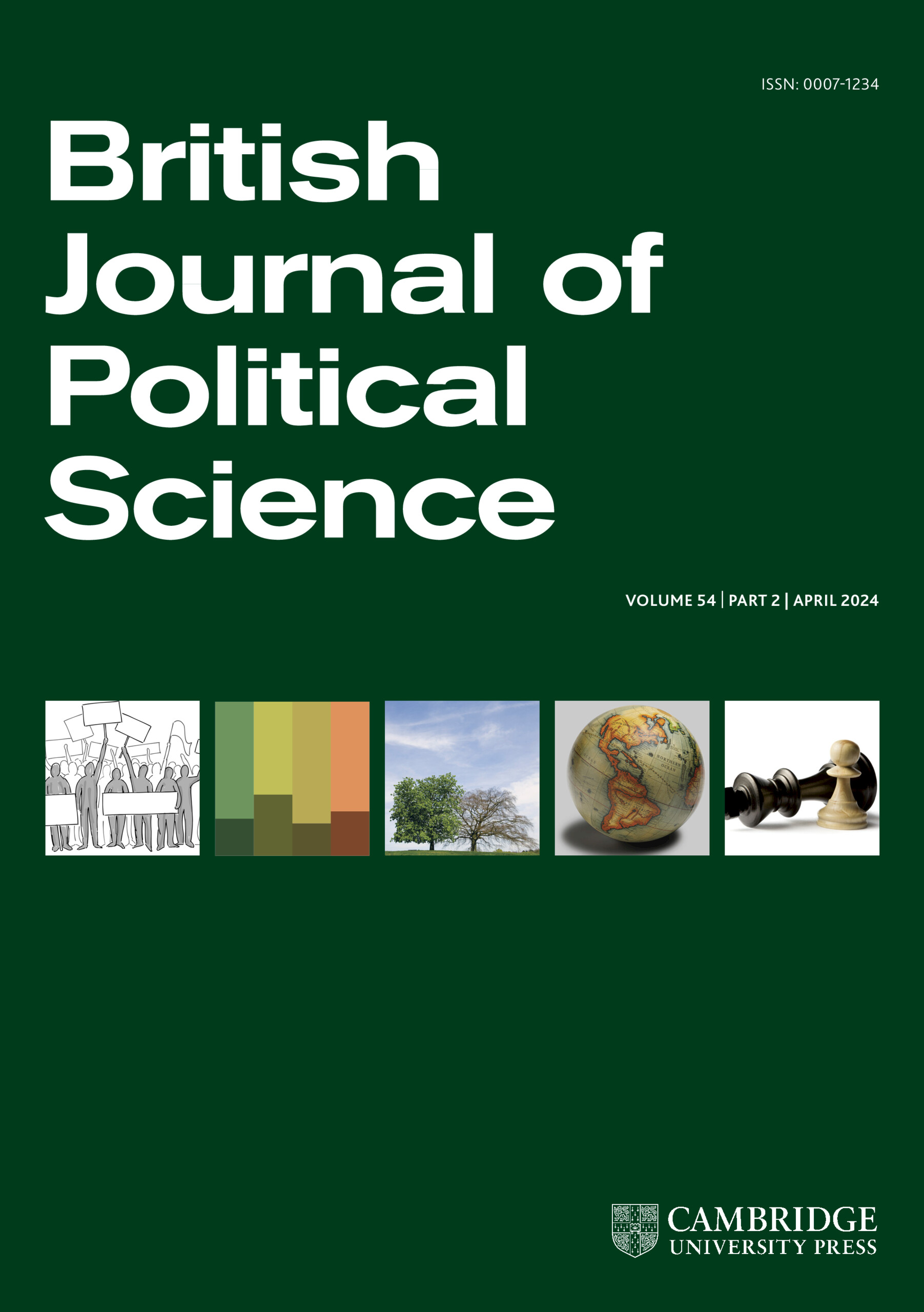Dynamics of Polarization: Affective Partisanship and Policy Divergence
IF 4.6
1区 社会学
Q1 POLITICAL SCIENCE
引用次数: 0
Abstract
Abstract We explore the dynamics of affective partisanship and policy divergence in a behavioral voting model. Voters are adaptive and influenced by partisan affect, while political parties are rational and office motivated. We show that the affective partisanship of the electorate and the divergence of party platforms can be mutually reinforcing, thus providing an explanation for the observed co-movement of affective and elite polarization in recent decades. Whether the induced behavioral path exhibits low polarization or high polarization depends on the salience of group identity and the number of moderate voters. Thus, shocks to those factors, perhaps due to such events as economic crises or war, can lead to the polarization or depolarization of the electorate and of the elite.两极分化的动力:情感党派与政策分歧
我们在行为投票模型中探讨了情感党派关系和政策分歧的动态。选民是适应性的,受党派影响,而政党是理性的,有办公室动机。我们表明,选民的情感党派关系和政党纲领的分歧可以相互加强,从而为近几十年来观察到的情感和精英两极分化的共同运动提供了解释。诱导行为路径呈现低极化还是高极化,取决于群体认同的显著性和温和派选民的数量。因此,对这些因素的冲击,可能是由于经济危机或战争等事件,可能导致选民和精英的两极分化或去两极分化。
本文章由计算机程序翻译,如有差异,请以英文原文为准。
求助全文
约1分钟内获得全文
求助全文
来源期刊

British Journal of Political Science
POLITICAL SCIENCE-
CiteScore
8.70
自引率
4.00%
发文量
64
期刊介绍:
The British Journal of Political Science is a broadly based journal aiming to cover developments across a wide range of countries and specialisms. Contributions are drawn from all fields of political science (including political theory, political behaviour, public policy and international relations), and articles from scholars in related disciplines (sociology, social psychology, economics and philosophy) appear frequently. With a reputation established over nearly 40 years of publication, the British Journal of Political Science is widely recognised as one of the premier journals in its field.
 求助内容:
求助内容: 应助结果提醒方式:
应助结果提醒方式:


